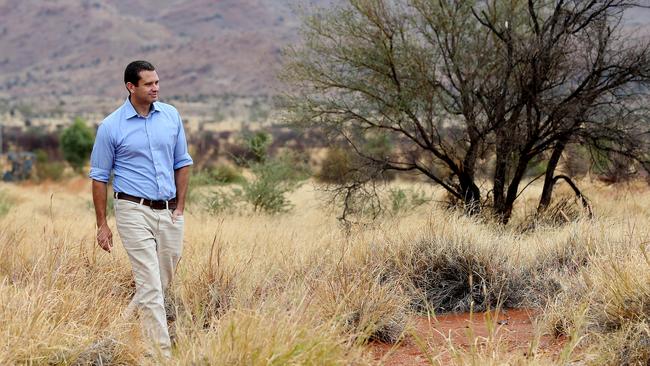Lauren Novak: Fresh ideas are needed to rid our APY Lands out of poverty
BUYING a whole pineapple in the Pukatja store, in one of South Australia’s remote indigenous communities, can cost you as much as $7.30.

Opinion
Don't miss out on the headlines from Opinion. Followed categories will be added to My News.
BUYING a whole pineapple in the Pukatja store, in one of South Australia’s remote indigenous communities, can cost you as much as $7.30.
It’s just one example of the exorbitantly high cost of food in the Anangu Pitjantjatjara Yankunytjatjara Lands in the state’s Far North.
Successive Aboriginal Affairs ministers have been criticised for failing to find a sustainable solution to food security on the Lands, along with a raft of persistent issues from a lack of employment opportunities and accessible health care through to abuse, financial mismanagement and governance.
This week we learned of a startlingly simple idea that may finally be delivering results on the food front. A refrigerated road train now picks fresh produce up at Adelaide’s Pooraka market and drives it direct to APY communities once a week, cutting the two-week wait for stale supplies from Alice Springs.
The new freight service — run by an Anangu organisation, Mai Wiru, received some initial government funding but is now self-funded through sales and sustaining local jobs. Minister Kyam Maher — SA’s fifth Aboriginal Affairs minister in nine years — says the new arrangement has cut prices in Lands stores by up to a quarter.
It sounds like progress, but some may be wary given previous solutions to providing fresh and affordable food, like market gardens, did not deliver.
The key to sustainable change in any community is local ownership, and that appears central to the new food arrangements being driven by Mai Wiru.
It is something the new minister wants to expand to the provision of other services in APY communities.
At present there are few employment opportunities for Anangu people, outside lauded art centres, continuing reliance on welfare. Minister after minister has said addressing these problems takes time and, in this respect, the latest to take the helm is no different.
Visiting the APY Lands on his first ministerial trip last month, Mr Maher told me: “If there was an easy way to make a difference ... it would have been done by now ... I think we’re heading in the right direction. I’m optimistic about the future.”
It is hard to grasp the sheer remoteness of the state’s far north if you live in Adelaide, and this can make it difficult to understand the factors that can slow the pace of change. “It’s a universe away up here,” as one person put it to me on the recent ministerial visit.
It is strikingly beautiful country and no wonder people with a deep connection to that land want to live there.
In WA, there are fears remote Aboriginal communities will be shut down because of funding cuts — prompting nationwide protests this week.
State and federal governments have promised that won’t happen in SA, and Mr Maher has made it clear he sees his challenge as how — not whether — to make life for the 2500-odd residents of the APY Lands sustainable.
The beauty of the place would suggest tourism might be an answer, but without mobile phone coverage or street lights in many communities, there is a lot of work to do to put in place the infrastructure that would be required for tourism ventures.
The art scene is sustaining many talented artists with good profits and a way to pass on culture to family and outsiders. Art centre directors are pushing for a permanent gallery space for APY art in Sydney, but the idea would need corporate backing. A $100 million road upgrade is planned but is in the very early stages. Mining is a growing industry but requires specific skills.
As Mr Maher has suggested, the service industry is a starting point for growing local employment. One locally-run construction company has 88 casual Anangu workers on its books, mostly rebuilding Housing Trust homes. A Trade Training Centre in Umuwa offers nationally accredited courses in hospitality, mechanics and carpentry, and has the potential to skill locals to work in Lands stores and takeaway shops or cater for the aged care homes and childcare centres which rely on trucked-in ready meals.
Addressing the “poverty and disadvantage” that Mr Maher concedes still holds some APY people back will take persistence and good relationships with Anangu leaders and the Federal Government. For its part, the state Opposition has had a long-running bipartisan attitude to indigenous affairs. It wants the focus on improving safety, education and employment.
Even if he is bumped up in the next reshuffle, Mr Maher should be able to take the Aboriginal affairs portfolio with him. This will give him the time he says is needed to make lasting change.


